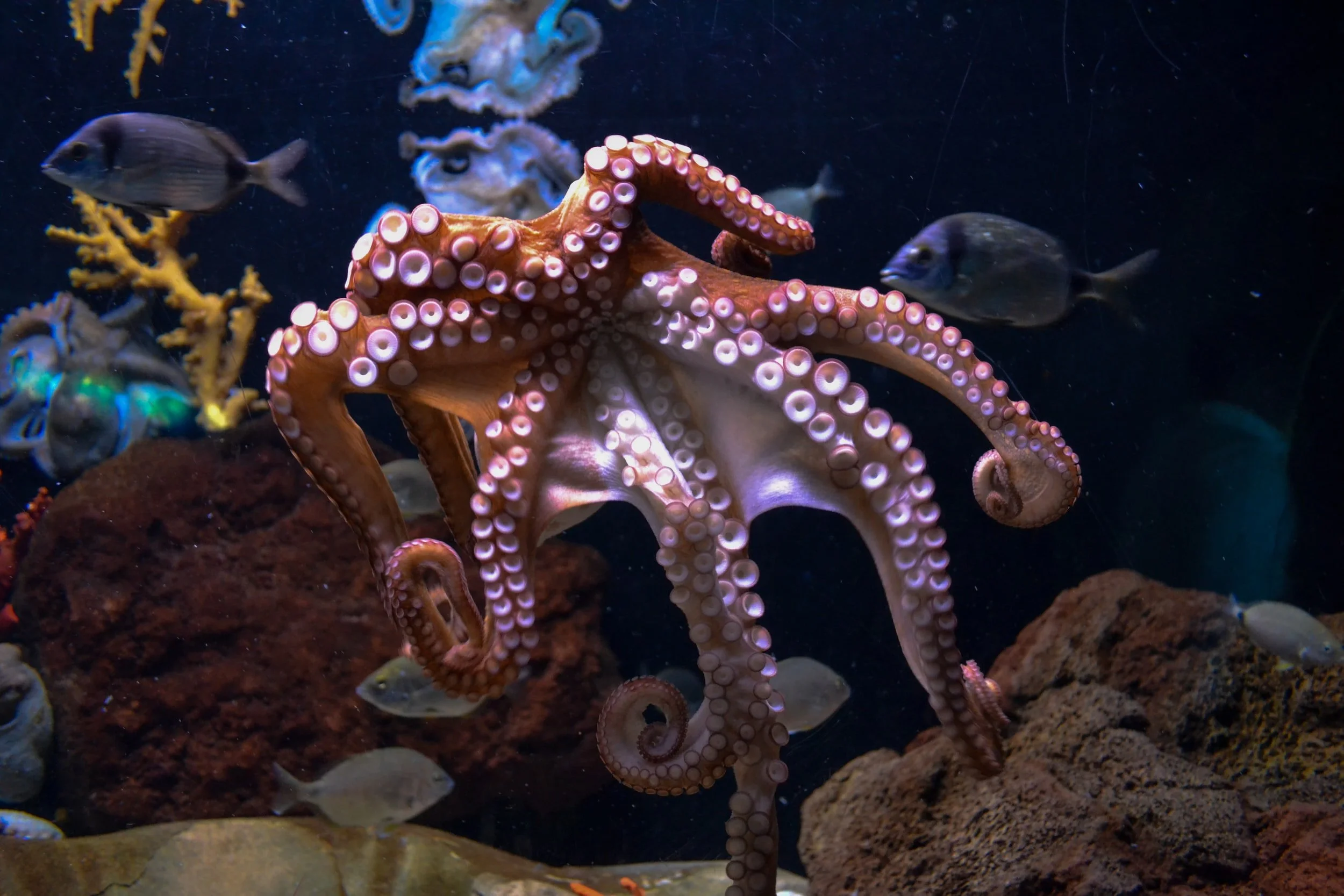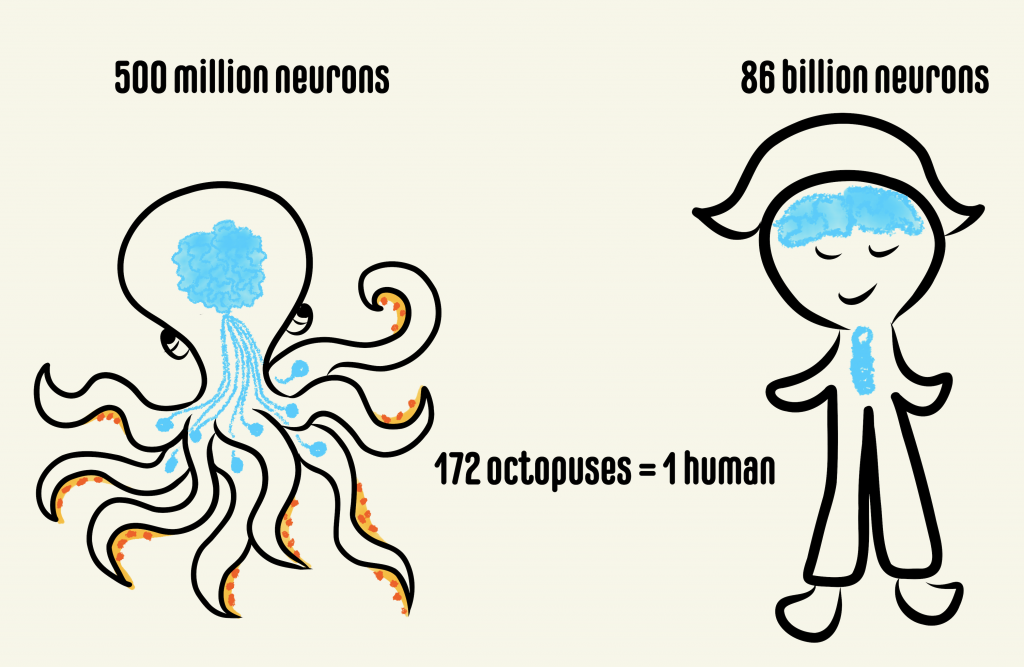Unlocking the Enigma: Exploring the Fascinating Traits of Octopuses and Humans!
Introduction
Octopuses are fascinating creatures that have long captivated scientists and animal enthusiasts alike. They are highly intelligent and have complex behaviors that are similar to some aspects of human behavior. In this blog post, we will explore some of the similarities between octopuses and humans.
1. Highly Developed Nervous Systems
The nervous systems of humans and octopuses are surprisingly similar, despite the vast evolutionary differences between the two species. Both humans and octopuses have complex nervous systems that allow them to process information from their environment, communicate with others, and coordinate their movements.
One of the most notable similarities between the nervous systems of humans and octopuses is the presence of a centralized brain. In humans, the brain is located in the skull and is responsible for coordinating all of the body's functions, including movement, sensation, and cognition. Octopuses, on the other hand, have a distributed nervous system, with two-thirds of their neurons located in their eight arms. However, they also have a centralized brain located in their head that receives and processes information from their arms and other sensory organs.
Both humans and octopuses also use specialized nerve cells called neurons to transmit electrical signals throughout their bodies. These neurons allow them to sense and respond to stimuli in their environment, as well as communicate with other individuals of their species. In humans, neurons are organized into complex networks that allow us to think, reason, and solve problems. In octopuses, the neurons in their arms allow them to perform complex tasks, such as opening jars or manipulating objects with precision.
Another similarity between the nervous systems of humans and octopuses is their ability to learn and remember information. Both species have been shown to exhibit a wide range of learning and memory capabilities, including classical conditioning, spatial memory, and observational learning. Octopuses, for example, have been shown to remember the locations of prey and to recognize individual humans who have interacted with them in the past.
Finally, both humans and octopuses are capable of exhibiting complex behaviors that suggest the presence of emotions and a sense of self. Octopuses have been observed engaging in playful behaviors, exhibiting curiosity, and even displaying aggression towards other animals or humans that they perceive as threats. Similarly, humans exhibit a wide range of emotional and social behaviors, including empathy, compassion, and even altruism towards other individuals.
2. Problem-Solving Abilities
Octopuses are known for their problem-solving abilities, and they have been observed using tools and manipulating objects in the wild. In laboratory settings, octopuses have been able to open jars, unscrew lids, and navigate through mazes. Humans are also highly skilled at problem-solving, and our ability to innovate and create tools has allowed us to thrive as a species.
3. Communication
Octopuses use a variety of communication methods to interact with each other and their environment. They can change the color and texture of their skin to blend in with their surroundings or to communicate with other octopuses. They also use body posture and movement to convey information. Humans, too, use a variety of communication methods, including verbal and non-verbal communication.
4. Memory
Octopuses have been shown to have excellent long-term memory. In one study, an octopus was able to remember the location of a hidden treat for at least five months. Humans also have excellent long-term memory, which is essential for learning and retaining information.
5. Learning
Octopuses are able to learn from their experiences and adapt their behavior accordingly. They can learn to associate specific colors or shapes with certain types of prey, and they can also learn to avoid predators based on previous encounters. Humans also learn from experience, and our ability to learn and adapt has allowed us to develop complex societies and technologies.
6. Emotions
There is some evidence to suggest that octopuses may experience emotions. For example, octopuses have been observed displaying behaviors that are consistent with anxiety or fear, such as hiding or changing color in response to a threat. Humans, of course, experience a wide range of emotions, from joy and love to anger and sadness.
7. Tool Use
Octopuses have been observed using tools in the wild, such as coconut shells to protect themselves from predators or to use as a shelter. They have also been observed using rocks to create a barrier around their den. Humans, too, are skilled at using tools, which has allowed us to create complex technologies and infrastructure.
8. Curiosity
Octopuses are highly curious creatures, and they are known for their exploratory behavior. They have been observed investigating new objects and environments, and they have even been known to escape from their tanks in aquariums. Humans, too, are naturally curious, and our desire to explore and discover new things has driven scientific and technological progress.
9. Adaptability
Octopuses are highly adaptable creatures, and they are able to change their behavior and physiology in response to their environment. For example, octopuses can change the color and texture of their skin to blend in with their surroundings, and they can also change the shape of their bodies to fit through small spaces. Humans, too, are highly adaptable, and our ability to adapt to different environments has allowed us to survive and thrive in a wide range of conditions.
In Conclusion
In conclusion, while octopuses and humans may seem like very different creatures on the surface, they share many similarities in terms of their nervous systems, problem-solving abilities, communication methods, memory, learning, emotions, tool use, curiosity, and adaptability. By understanding these similarities, we can gain a deeper appreciation for the intelligence and complexity of these fascinating creatures, and perhaps even learn something about ourselves in the process. By optimizing this blog post for search engines, we can also ensure that it reaches a wider audience and helps educate people about the incredible world of octopuses and other marine life.



